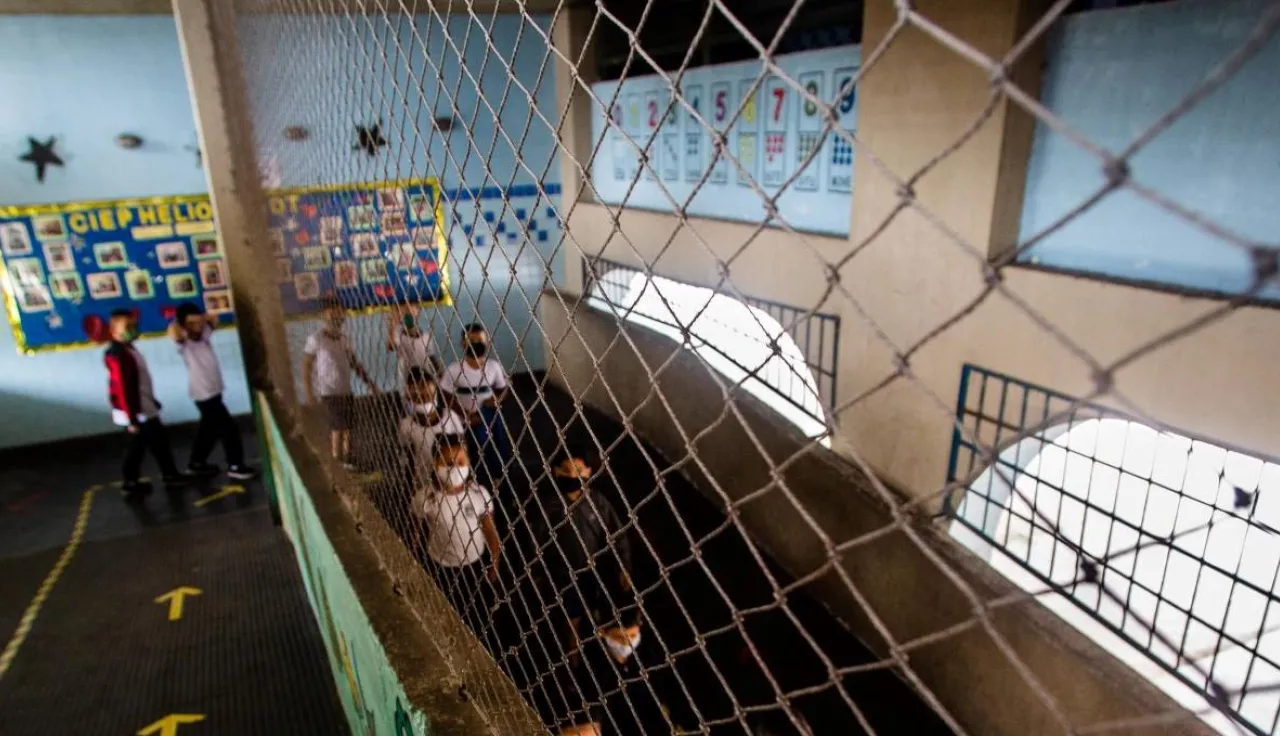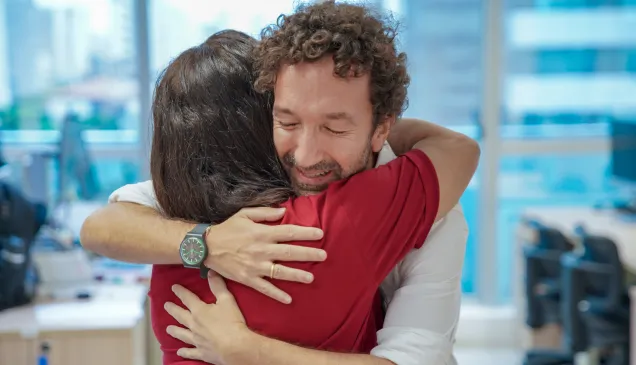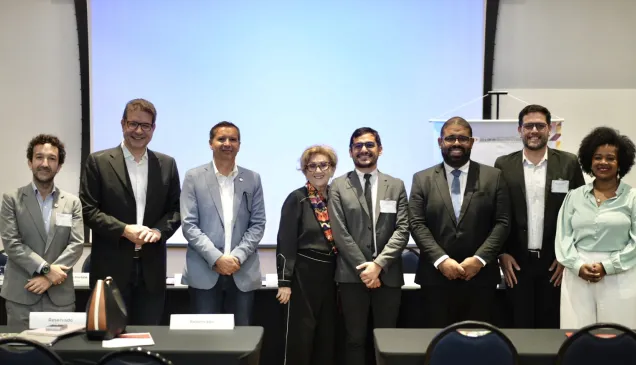Katowice, Poland (ICRC) – The Safer Access programme for essential public services is making a significant difference to children's education in Rio de Janeiro, Brazil. In light of this success, on 29 June 2022, as part of the World Urban Forum in Poland, the International Committee of the Red Cross (ICRC) presented the Safer Access methodology and the positive impact it is having on the city's 504 municipal schools located in areas affected by armed violence.
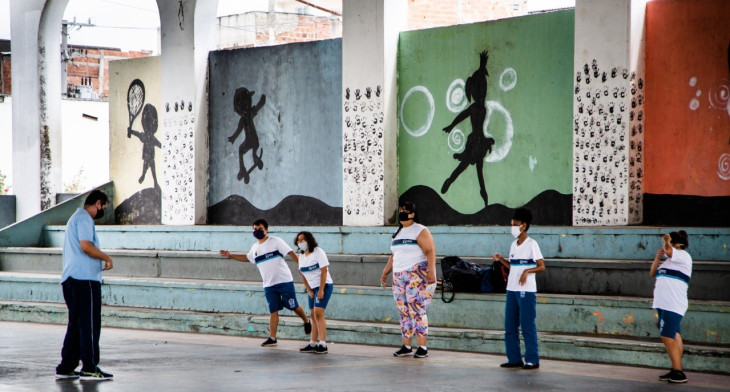
Students during a dance class at a Municipal School in Rio de Janeiro. Photo: AF Rodrigues/ICRC
"The Safer Access Framework supports essential service providers, such as those in health care, education and social care, to reduce and mitigate the risks faced by people who are exposed to armed violence, whether as part of their work or in their daily lives. Ultimately, it helps prevent services from closing," explained Gilles Carbonnier, the ICRC's vice-president, during the panel discussion on "Ensuring resilient urban services: The Rio de Janeiro experience". The ICRC also works to strengthen access to essential services in many other countries affected by armed conflict and violence.
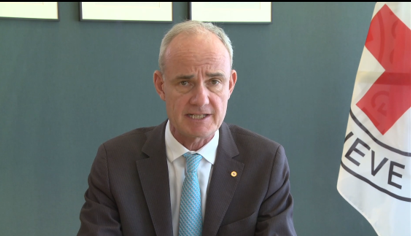
Gilles Carbonnier talks about SAF at the World Urban Forum
The mayor of Rio de Janeiro, Eduardo Paes, highlighted the importance of the Safer Access programme and the partnership with the ICRC, explaining that the focus has always been on maintaining quality and on protecting the right to learn. "Our aim for 2024 is to become the reference point for reducing inequalities in education. We have the largest municipal education network in the whole of Latin America, with 170,000 students, 1,544 teaching establishments and almost 52,000 staff," he added.
Renata Costa de Oliveira, the head of preventive education within the School Protection Management Unit of the Municipal Secretariat for Education in Rio de Janeiro, said that many of the city's schools are in communities affected by armed violence and she reiterated the need to tailor the methodology to each area.
"The training helps people to better recognize the signs that violence may break out in their area. By raising awareness and evaluating the situation daily, a decision can be made about whether it is safe or not to provide a full and face-to-face community presence. There may be other options, such as operating on a reduced schedule," said Costa de Oliveira. "The methodology involves making an evaluation based on a set of criteria, which means that neither the community nor the physical and mental well-being of staff are adversely affected," she added.
The Safer Access programme provides guidance to teachers and students. It also involves the planning of joint actions in schools and across areas and it helps reduce the school drop-out rate. "It is important that teachers are able to calculate actual risk and are in a position to implement appropriate measures to address that risk. The programme aims to ensure that providers of essential services and their users are not exposed to violence but still have access to the service in question," said Karen Cerqueira, the ICRC's Safer Access programme coordinator.
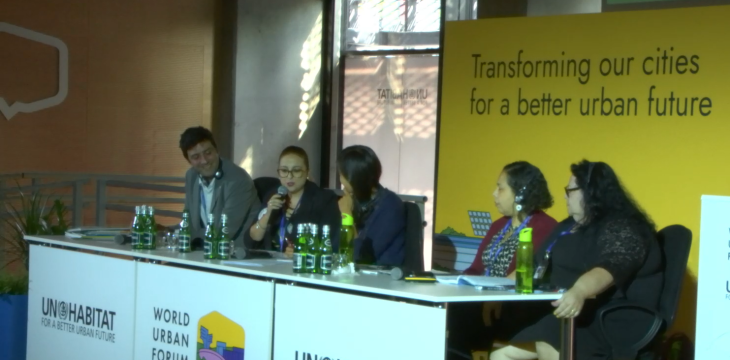
Karen Cerqueira speaks during the World Urban Forum alongside representatives of the Rio de Janeiro SME
The impact of Safer Access on schools
One of the schools in Rio de Janeiro that has implemented the Safer Access programme is the Hélio Smidt Public Integrated Education Centre. Its principal, Adriano Rosa de Souza, described how implementing the programme has allowed real dangers to be correctly identified and how applying the protocols has enabled schools to stay open.
"In the past, each school made its own decisions, but now, with the Safer Access methodology, we coordinate our actions and no longer make impulsive decisions. We evaluate a situation and seek out information from within an area so that we can avoid closing a school. This also means we can limit the number of people who are on the move and at risk, which is important," he explained.
Rosa de Souza believes that the success at the Hélio Smidt school is the result of the entire school community being involved. "We organize regular meetings with the Secretariat for Education, the neighbourhood association, parents, students and teachers. The school implemented the Safer Access programme plan and now everyone knows what to do if there is a shooting, for example. The plan gives a specific role to every single person, and its success is the result of involvement, information and dialogue," he added.
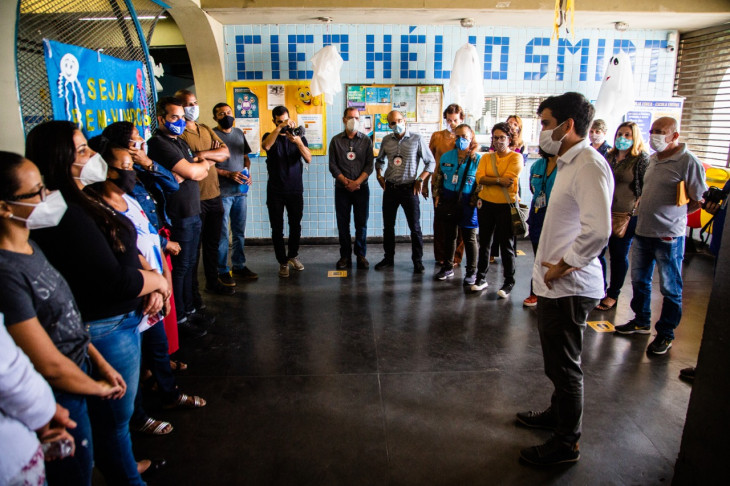
Education professionals and ICRC representatives at Ciep Hélio Smidt. Photo: AF Rodrigues/ICRC
Safer Access
The Safer Access programme was implemented in seven of Brazil's municipalities: Duque de Caxias (Rio de Janeiro), Fortaleza (Ceará), Florianopolis (Santa Catarina), Vila Velha (Espírito Santo), Porto Alegre (Rio Grande do Sul), Rio de Janeiro (Rio de Janeiro) and San Pablo (San Pablo). Training was provided to a total of 1,457 facilities that deliver public health, education and social care services. Around 4.3 million people – the estimated number of people receiving services directly from these facilities – will have benefited from the programme.
Since 2016, some 40,000 professionals – 7,768 in health care, 30,987 in education and 662 in social care – were trained in the Safer Access methodology and in safer behaviours in order to manage the risks related to armed violence in certain areas.
The World Urban Forum
Established by the United Nations to address one of the world's most pressing issues, the World Urban Forum is now the world's leading conference on urbanism. Half of the world's population already lives in cities and, in the next 50 years, this proportion is expected to rise to two-thirds. Significant urban challenges include reducing the increasing level of poverty in cities, improving access to basic services for the urban poor – such as housing, clean water and sanitation – and ensuring urban development and growth is both sustainable and beneficial to the environment.
More information
Sandra Lefcovich, ICRC Brasília, (61) 98175-1599
slefcovich@icrc.org
Danyelle Simões, ICRC Brasília, (61) 98248-5600
dsimoes@icrc.org

